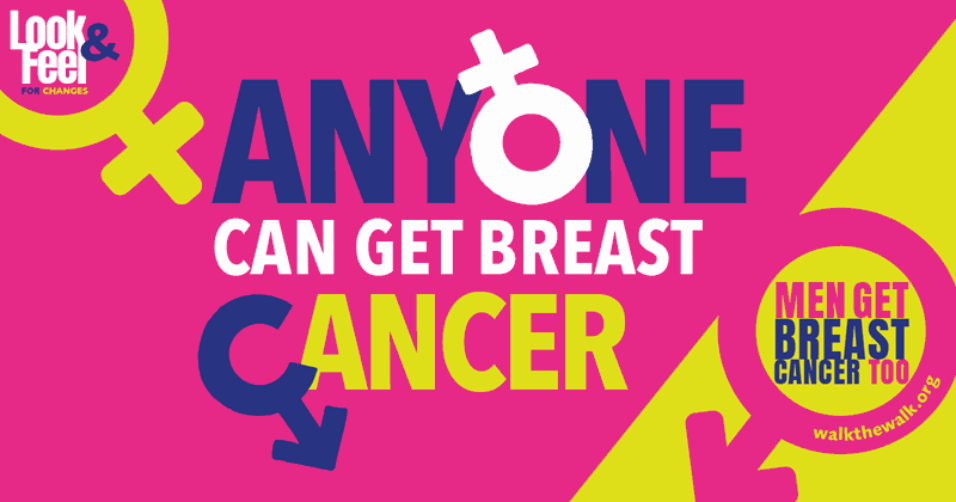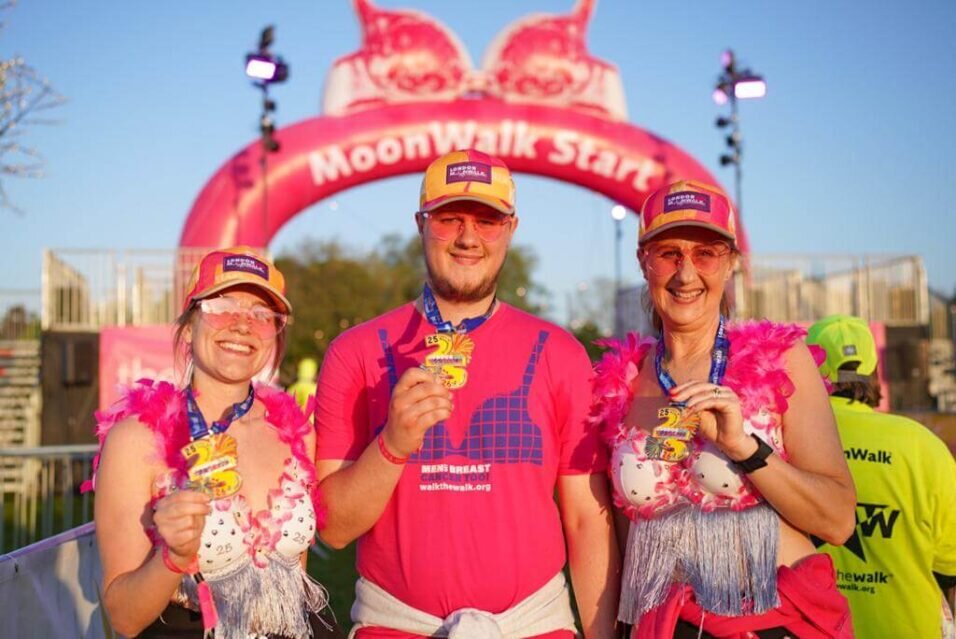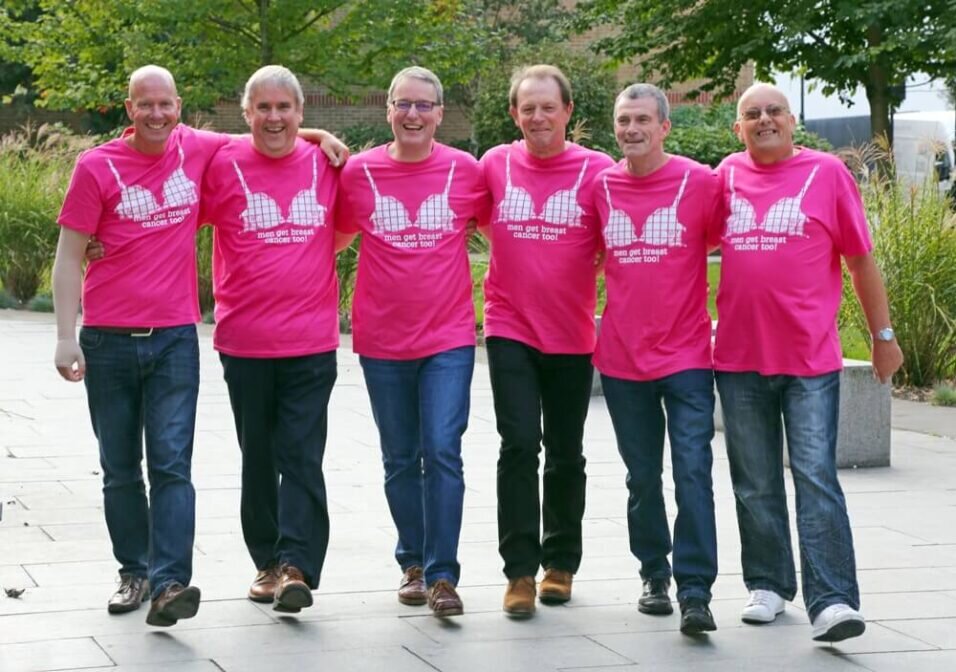Breast Cancer Awareness Month 2025
Join us this Breast Cancer Awareness Month to raise awareness, inspire change, and make a difference. Find out here how you can support Walk the Walk this October!

Check your Breasts or Chest!
He, She, or You, anyone with breast tissue can get breast cancer. So, it’s really good news that thanks to growing awareness, many women now regularly check their breasts and get earlier diagnosis, leading to better outcomes and survival of breast cancer. We want to encourage everyone to start checking regularly.

Men Get Breast Cancer Too
Yes… Men Get Breast Cancer Too! With more awareness lives could be saved… and if we can save even one life by our campaign, it will make it worthwhile!

